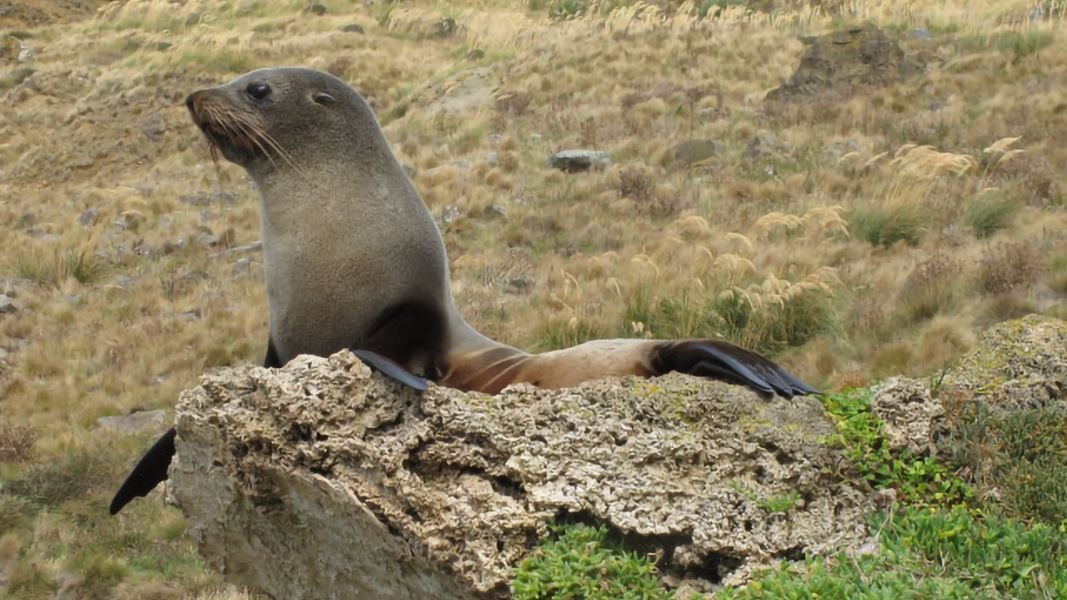
Introduction
As we come into the season where kekeno/fur seals spend more time on shore, DOC East Coast is asking people to respect these animals and give them space.Date: 22 July 2020
Although seals are marine mammals, they spend a lot of time on land, particularly between June and September. They can sometimes show up in places you might not expect, occasionally following rivers upstream. Rough weather conditions can also encourage them to seek shelter on shore.
DOC Biodiversity Ranger Jaime Quirk says even though people may be concerned, this behavior is normal.
“We receive calls from the public each year from people concerned about a seal they’ve seen. It’s great to be part of a community that cares so much about our wildlife but in most cases, the seal is fit and well,” he says.
“Seals on land sometimes cough or sneeze, and often have weepy eyes. They also enjoy drifting in the surf or lazing on the beach, which are completely natural behaviours. They will return to the sea when they are rested and ready to go.
“It’s also important to remember these are wild animals and shouldn’t be approached. They have sharp teeth and can move quickly if they feel threatened. Keep a distance of at least 20 meters.”
Anyone who has genuine concerns about the welfare of an animal, such as a seal being harassed or that has severe injuries, should get in touch with 0800 DOC HOT (0800 362 468).
DOC has a hands-off policy with seals and will only intervene if a seal is obviously injured, entangled in marine debris, or is in a dangerous place such as a public road. On the occasion where DOC does need to intervene, Jamie Quirk says it’s important for the public to allow rangers to do their job.
He adds, “It’s not just fur seals. We do sometimes see other marine mammals like leopard seals on our coastline, which is pretty special. The same guidelines apply for them – give them space and let them rest.”
If you encounter a seal on or near a beach, please give it space.
- Always keep dogs on a leash, under control and away from seals
- Ensure you keep small children at a safe distance and under your control when watching seals
- Don’t get closer than 20 metres
- Do not get between the seal and the sea
- Do not touch or feed the seal.
Background
All seals, sea lions, dolphins and whales are protected under the Marine Mammals Protection Act 1978. It’s an offence to harass, disturb, injure or kill marine mammals.
Anyone charged with harassing, disturbing, injuring or killing a marine mammal faces a maximum penalty of two years imprisonment or a fine to a maximum of $250,000.
Contact
For media enquiries contact:
Email: media@doc.govt.nz